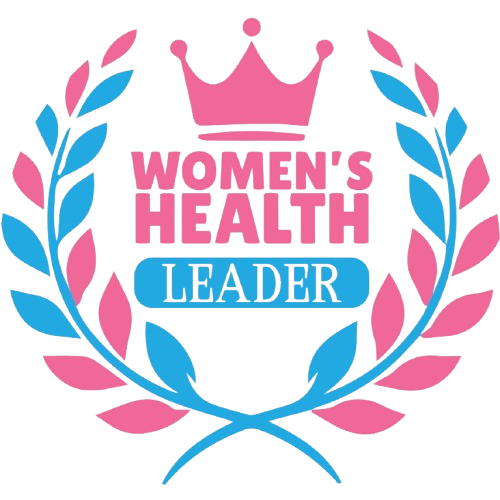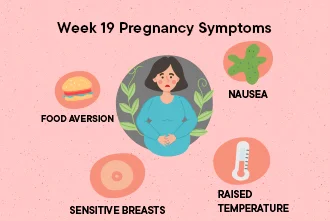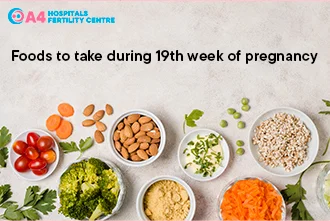
Dr. Aruna Ashok MBBS, MS OG, DNB OG
- Clinical Director


This week, you might experience one of the most magical moments of pregnancy – the first kick of your baby. This little flutter is often referred to as the "quickening." It's a significant milestone, marking the first physical connection between you and your baby.
Around this time, your baby weighs about 8.5 ounces and is roughly 6 inches long, about the size of a mango. Your baby's muscles are getting stronger, and they are starting to practice movements. This practice is crucial for muscle and brain development. You might feel these movements as gentle flutters or tiny bubbles. It's an exciting sign that your baby is active and growing.
Every woman's experience with feeling the first kick is different. Some may feel it as early as 16 weeks, while for others, it might be closer to 20 weeks. If this is your first pregnancy, you might not recognize the sensation immediately. It can feel like gas bubbles or a light tapping. As your pregnancy progresses, these movements will become more pronounced and regular.
Feeling your baby's first kick can bring a mix of emotions – excitement, joy, and even a bit of disbelief. It's a beautiful reminder that a new life is growing inside you. To enhance this bonding experience, try lying down quietly, placing your hands on your belly, and talking or singing to your baby. You might notice your baby responding to your voice or touch.
At A4 Fertility Centre, we understand how special this moment is. Our Birthing classes are designed to help you connect with your baby and understand these early movements. These classes offer practical advice and exercises to strengthen your bond with your little one.
How did you feel when you first noticed those gentle flutters? Every kick is a little love note from your baby, reminding you of the incredible journey you're on together.


As you enter the 19th week of pregnancy, your body continues to adapt to support your growing baby. You might notice several symptoms that are new or more pronounced this week.
Firstly, your baby bump is becoming more noticeable. You might find your clothes fitting differently as your uterus expands, making room for your baby. This growth can lead to a condition called round ligament pain. It is usually a sharp pain or jabbing feeling on one or both sides of your abdomen. It's a normal part of pregnancy. This is mainly due to the stretching of the ligaments that support your uterus.
Hormonal changes can also bring about new symptoms. You might experience increased skin pigmentation, known as melasma or the "mask of pregnancy." This causes darker patches on your face. Another common symptom is heartburn or indigestion, resulting from the relaxation of the valve between your stomach and esophagus.
Additionally, you might feel more emotional or anxious. Pregnancy hormones can inhibit your mood. It makes you feel happy one moment and tearful the next. It's important to talk about these feelings with your partner, friends, or healthcare provider.
Your baby is also affecting your circulation. Amplified blood volume and hormonal changes can lead to swollen feet and ankles, especially towards the end of the day. Try to rest with your feet up and avoid standing for long periods.
Finally, you might notice more vivid dreams. These can be a reflection of your subconscious mind processing the changes and excitement of pregnancy. Keep a dream journal. It can be a fun way to track these nighttime adventures.
A4 Fertility Centre's Birthing classes offer support for managing these symptoms. From understanding body changes to practicing relaxation techniques, our classes are here to guide you through every stage of your pregnancy.
How are you feeling this week? Remember, every symptom is a sign that your body is working hard. This is to nurture your growing baby.
Maintain a healthy diet. It is crucial during pregnancy, especially as you reach the 19th week. Your nutritional needs are changing to support your growing baby and keep you energized.
Protein is essential for your baby's growth and development. Include lean meats, eggs, dairy products, beans, and legumes in your diet. These foods help build your baby's tissues and organs.
Calcium is another important nutrient. It supports your baby's developing bones and teeth. Aim for at least three servings of calcium-rich foods daily, such as milk, yogurt, cheese, and leafy green vegetables.
Folate, or folic acid, is vital for preventing neural tube defects. Continue taking prenatal vitamins and include foods like fortified cereals, lentils, and spinach in your diet. These provide the necessary folate to support your baby's brain and spine development.
Iron is important to prevent anemia, which can cause fatigue. Iron-rich foods include red meat, poultry, fish, beans, and fortified cereals. Pair these with vitamin C-rich foods like oranges and strawberries to enhance iron absorption.
Fiber helps prevent constipation, a common pregnancy complaint. Whole grains, fruits, vegetables, and legumes are excellent sources of fiber. Aim for at least 25-30 grams of fiber daily to keep your digestive system healthy.
Hydration is equally important. Drink plenty of water throughout the day to stay hydrated and support increased blood volume. Aim for at least 8-10 glasses of water daily.
At A4 Fertility Centre, our Birthing classes include nutritional guidance to help you make the best food choices. Our experts provide personalized advice based on your dietary needs and preferences.
What are your favorite pregnancy snacks? Remember, a balanced diet not only supports your baby’s growth but also keeps you feeling your best.
Counseling plays a vital role in maintaining emotional well-being during pregnancy, especially as you enter the 19th week. Pregnancy can bring a range of emotions, and having a supportive network can make a significant difference.
Talking to a counselor can help you manage stress and anxiety. Pregnancy is a time of change, and it's normal to have concerns about your baby's health, your changing body, and the future. A counselor can provide strategies to cope with these feelings and offer a safe space to express your thoughts.
Couples counseling can also be beneficial. It allows you and your partner to discuss your expectations, fears, and plans for the future. This can strengthen your relationship and ensure you are both on the same page regarding parenting roles and responsibilities.
Group counseling or support groups are another option. Connecting with other pregnant women can provide a sense of community and shared experience. These groups offer a platform to discuss common concerns, share advice, and celebrate milestones together.
At A4 Fertility Centre, our Birthing classes include sessions on emotional well-being and counseling. Our experienced counselors provide guidance on managing stress, building resilience, and preparing for the changes that come with parenthood.
Additionally, mindfulness and relaxation techniques can be helpful. Practices such as meditation, deep breathing exercises, and prenatal yoga can reduce stress and promote a positive mindset. These techniques can be easily incorporated into your daily routine and can significantly improve your overall well-being.
Have you considered talking to a counselor or joining a support group? Remember, seeking help is a sign of strength, and it's important to take care of your mental health as much as your physical health.
At week 19, several important tests and screenings can ensure both your health and your baby's development are on track. These tests provide valuable information and help detect any potential issues early on.
One of the key tests during this period is the mid-pregnancy ultrasound, often called the anatomy scan. This detailed ultrasound checks your baby's growth and development, including the heart, brain, kidneys, and limbs. It also measures the amniotic fluid levels and examines the placenta's position.
Blood tests may also be conducted to check for any abnormalities or infections. These tests can include screening for gestational diabetes, which is usually done between 24 and 28 weeks but may be scheduled earlier based on your medical history.
Quad screen test is another important screening. It measures the levels of four substances in your blood to assess the risk of certain birth defects. While this test doesn't diagnose conditions, it can indicate if further diagnostic testing is needed.
If you haven't already, you may also be offered a fetal echocardiogram. This is a detailed ultrasound of your baby's heart, especially if there are any risk factors or concerns from previous scans.
Your doctor might recommend a urine test to check for urinary tract infections or preeclampsia. These conditions can be serious if left untreated, so regular monitoring is essential.
A4 Fertility Centre provides comprehensive prenatal care, including all necessary tests and screenings. Our Birthing classes cover what to expect during these tests and how to prepare for them. We aim to ensure you feel informed and supported throughout your pregnancy.
Have you had your anatomy scan yet? It's an exciting opportunity to see your baby and ensure everything is progressing well. Regular check-ups and tests are crucial for a healthy pregnancy, so keep up with your appointments and discuss any concerns with your healthcare provider.